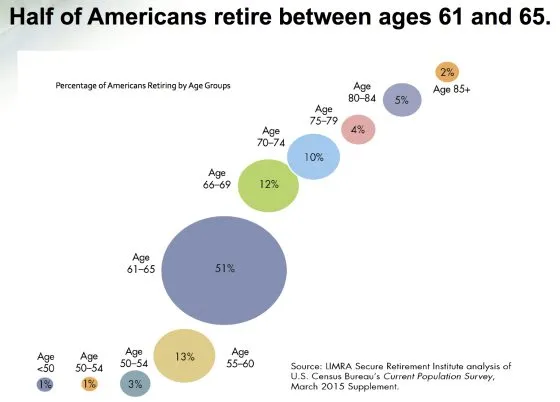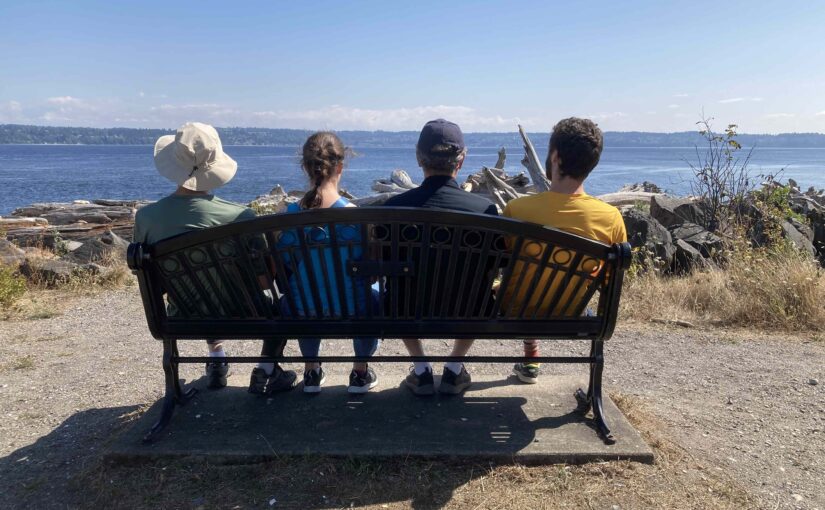I enjoy the work published on No Sidebar. It is one of the few blogs I regularly follow and I have been honored to have a few of my pieces published there. It has a large reach and positive influence in the minimalism and simple living community. Recently, however, I felt I needed to provide another perspective on an article titled “10 Things We’re Told Will Bring Happiness—But Rarely Do” written and published by No Sidebar on August 27, 2025, which has a short but problematic section on early retirement. I hope that this response article allows readers to consider how early retirement and happiness are intricately connected.
The No Sidebar article lists some common things that don’t deliver on their promise of happiness. It begins:
“Many of the things we’ve been told will bring us joy end up draining our time, money, and energy instead. They can keep us chasing a version of life that’s shinier on the outside than it is satisfying on the inside. Happiness, it turns out, has less to do with what we own and more to do with how we live. Here are ten things our culture says will make us happy—yet rarely do.”
Then the article lists several things that, I agree, can be hollow ways to try to find happiness, such as a popular social media profile, pursuing the latest technology, and keeping up with everyone else. But then it goes on to include early retirement on that list as something that won’t bring happiness. It says:
“Retiring early sounds appealing—until you realize that meaning and purpose aren’t guaranteed by having more free time. Happiness often comes from work that matters to us, whether paid or volunteer. The key is less about escaping work and more about finding or creating work worth doing.”
There’s a lot to unpack here. Below I identify four implied assertions these passages make about early retirement, and provide my responses to each of them.
Implied assertion 1: Our culture promotes early retirement as something that will make us happy.
Our culture is actually sending a very different message—spend, spend, spend to be happy. In fact, this same article identifies the cultural pressures we face to buy the latest stuff (items 1, 2, 5, and 9), upgrade our stuff (item 7), and keep up with the Joneses (item 10). I agree: the cultural message to not retire early and keep making (and spending) as much money as possible is a strong one. Most mainstream tax advisors recommend saving just 10-15% of your income for retirement. At that rate, most people won’t be able to retire until their 60s. That’s not a strong cultural push for early retirement.
In addition to cultural messages against early retirement, there are structural barriers, too. According to the Life Insurance And Market Research Association (LIMRA) the vast majority of Americans (82%) retire after age 60 (see chart). This is not surprising since laws prevent us from collecting early Social Security until age 62, Medicare until age 65, and full Social Security until age 67. In addition, tax-deferred accounts like IRAs and 401Ks are generally penalized 10% for withdrawals before age 59.5.

In short, early retirement is a counter-cultural, powerful way that many thoughtful people bring happiness into their lives. Very few people retire early because it requires pushing back on the cultural norm of spending most of our money on stuff, and instead, saving and investing a much larger percentage of our income than 10-15%. Those pursuing financial independence are buying their freedom out of our consumer culture machine.
Implied assertion 2: The time freedom gained from early retirement prevents us from easily finding purpose and meaning.
I am baffled by this one. The article implies that volunteer activities are somehow not part of early retirement. I disagree. Early retirees can and do an amazing amount of volunteer work in their communities and around the world because they are not tied down to a paid job.
While noble volunteer work is a great idea, it’s not the only way early retirees find meaning. That’s the point: they have time to explore and enjoy a vast array of meaning-making activities. Pursuing hobbies can bring meaning, reward, and joy. When I was working, my full-time job (though meaningful) was choking out what I valued most. I wanted to travel extensively, spend more quality time with my family and friends, read more, learn a language, take better care of my health, and add some whitespace in between these activities.
But my calendar showed a startling gap between what mattered most to me and how I actually spent my time. Our calendars don’t lie. They show us what we actually prioritize, not what we wish we prioritized. I quit my dream job (which was loaded with purpose and meaning) to pursue these higher priorities. I couldn’t be happier because I am following my values and my calendar now reflects these higher values. We don’t need to learn better time management to cut out the things we value to like quality family time so we can keep working; instead we need to challenge our culture that prioritizes work. Early retirement provides a way off of the work-earn-spend treadmill.
Slow traveling to faraway places (which the article dismisses in item 3) and immersing ourselves in different cultures can broaden our perspectives, build goodwill, and help break down fears of immigrants and others who might look or speak differently than we do. I have learned so much as I travel. Meaning and purpose are everywhere, and having time freedom from early retirement has helped me find it.

Implied assertion 3: If you haven’t found meaning or purpose in your current work, you shouldn’t retire early, but instead find or create more meaningful work.
Easy to say, but harder to do. Most jobs already have some meaning. Restaurant workers are feeding people and providing a nice dining experience. Housekeepers ensure clean and sanitary places for people to sleep. Car mechanics are helping people get back on the road so they can get to work. Doctors are healing the sick. Lawyers are helping people understand their legal options. But that doesn’t mean those workers want to do that for 40+ years or that this level of meaning is providing the happiness they seek.
Financially successful poets are rare. Thousands (millions?) of blogs, podcasts, and vlogs don’t even cover their basic costs. Most authors don’t get paid for their writing, or not enough to make a living. Most athletes remain amateur. Most small businesses fail. Most people like me with history degrees (and many other degrees for that matter) don’t work in their chosen field but instead work doing something else that pays the bills. Dream jobs are elusive and often don’t present themselves until later in life or without having achieved some form of financial independence to make the leap.
Purpose and meaning are not the sole purview of the working world. I had a very rewarding job educating military service members on personal finance, but I was happy to let go of the staff meetings, office politics, time cards, bureaucratic processes, and hours and hours of annual mandatory training. As an early retiree I still help educate people on personal finance for free and as often as I want, without all of the baggage of working or running my own business. I don’t spend a second thinking about affiliate links, advertising, or selling any of my writing or training, because I don’t want to, and I don’t have to because I pursued financial independence and retired early.
Implied assertion 4: Early retirement rarely makes a person happy.
I am an early retiree. I retired 5 years ago at the age of 52 as did my wife, and we are very happy. I have attended several conferences and meetups within the early retirement community and I have met hundreds of early retirees. Of course troubles come into every life, but on the whole this is the happiest group of people I have ever known, and these people have found strong purpose and meaning in their lives. We have found contentment because we have decided how much money is enough in our lives. We stopped continually adding to the coffers and instead have bought time freedom and full flexibility to pursue what activities we value most.
Working does not make people happier than early retirement. Working for pay at something you find meaningful does not make you happier than doing something you find meaningful (for pay or not) in early retirement. To the contrary, the time freedom of early retirement opens far more possibilities than working does for pursuing the things that make you happy.

Early retirement should not be characterized as devoid of purpose and meaning or lumped in as part of mainstream consumer culture. Quite the opposite—reaching full financial independence with the ability to retire early can mean decades of extra time to dedicate to what you value most in life. Sure, a small percentage of people will find (or create) a job that provides more meaning than anything else they could do with their time, and they will continue to do it even if they are financially independent. But for the rest of us who desire a counter-cultural approach, early retirement offers a path to meaning, purpose, and happiness.
[Post Cover Photo Caption: Early retirement has enabled me to have more quality time with family]
Thanks for reading! If you would like to be notified of new posts or updates from Living The FIgh Life, please subscribe below. I am an inconsistent blogger (hey, I'm retired!) so this is the best way to be notified of new content. Cheers!
![]()

I read that post on No Sidebar and was somewhat distressed by its assertions. I appreciate greatly your thoughtful and comprehensive response.
I really appreciate the feedback–thanks for reading!